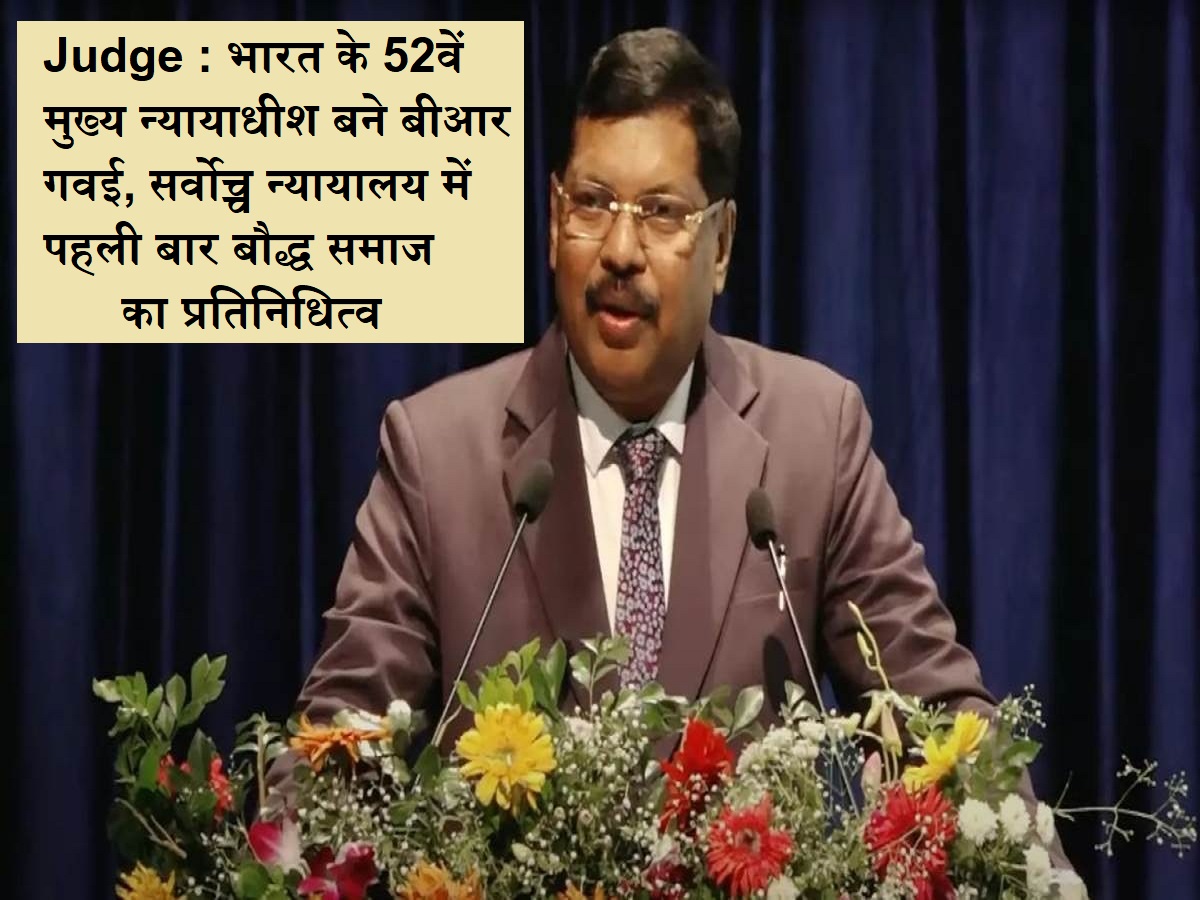News India Live, Digital Desk: Judge: Justice Bhushan Ramakrishna Gavai was sworn in as the 52nd Chief Justice of India (CJI) on Wednesday, which was a historical moment as the first Buddhist person to lead the country’s judiciary. The ceremony was held in the presence of President Draupadi Murmu at Rashtrapati Bhavan. Justice Gawai replaced outgoing CJI Sanjeev Khanna, who retired on Tuesday. His tenure will last for a little more than six months, which will last until November 23, 2025, when they get 65 years of compulsory retirement age.
Justice Gawai, a native of Amravati in Maharashtra, is also the second member of the Scheduled Caste community after Justice KG Balakrishnan. Since its establishment in 1950, only seven judges of the Scheduled Castes or Scheduled Tribes have been part of the Supreme Court bench.
Justice Gawai has been vocal about the role of positive action in his life. Addressing a function in April 2024, he credited Dr. BR Ambedkar for opening the way for people of Dalit communities. He had said, “It is only due to the efforts of Dr. BR Ambedkar that someone like me, who used to study in a semi-juggle area in the municipality school, could achieve this position.” He finished his address with “Jai Bhima”, for which he was stood and applauded.
Justice Gawai, appointed in the Supreme Court on May 24, 2019, has been included in several constitution bench and has assisted in historical decisions. He was sitting in a five-judge bench which unanimously ruled in favor of the Removal of Article 370 of 2019 of the Center, which ended the special status of Jammu and Kashmir. He was also sitting in the bench that held the election bond plan unconstitutional earlier this year.
In 1985, Justice Gawai, former Advocate General and Bombay High Court Judge Raja S.K. Started his legal practice with Bhonsle. He was made Additional Judge of the Bombay High Court in 2003 and in 2005 he was made a permanent judge. He practiced most constitutional and administrative laws in the Nagpur bench of the Bombay High Court and was a permanent lawyer of various civil bodies and universities in Maharashtra.
His ascension to the highest judicial post is a personal achievement as well as a symbolic moment of representation and inclusion in the Supreme Court of India.
Rain Alert: Alert of heavy rains and hailstorm in many areas of Maharashtra including Mumbai, administration issued warning
